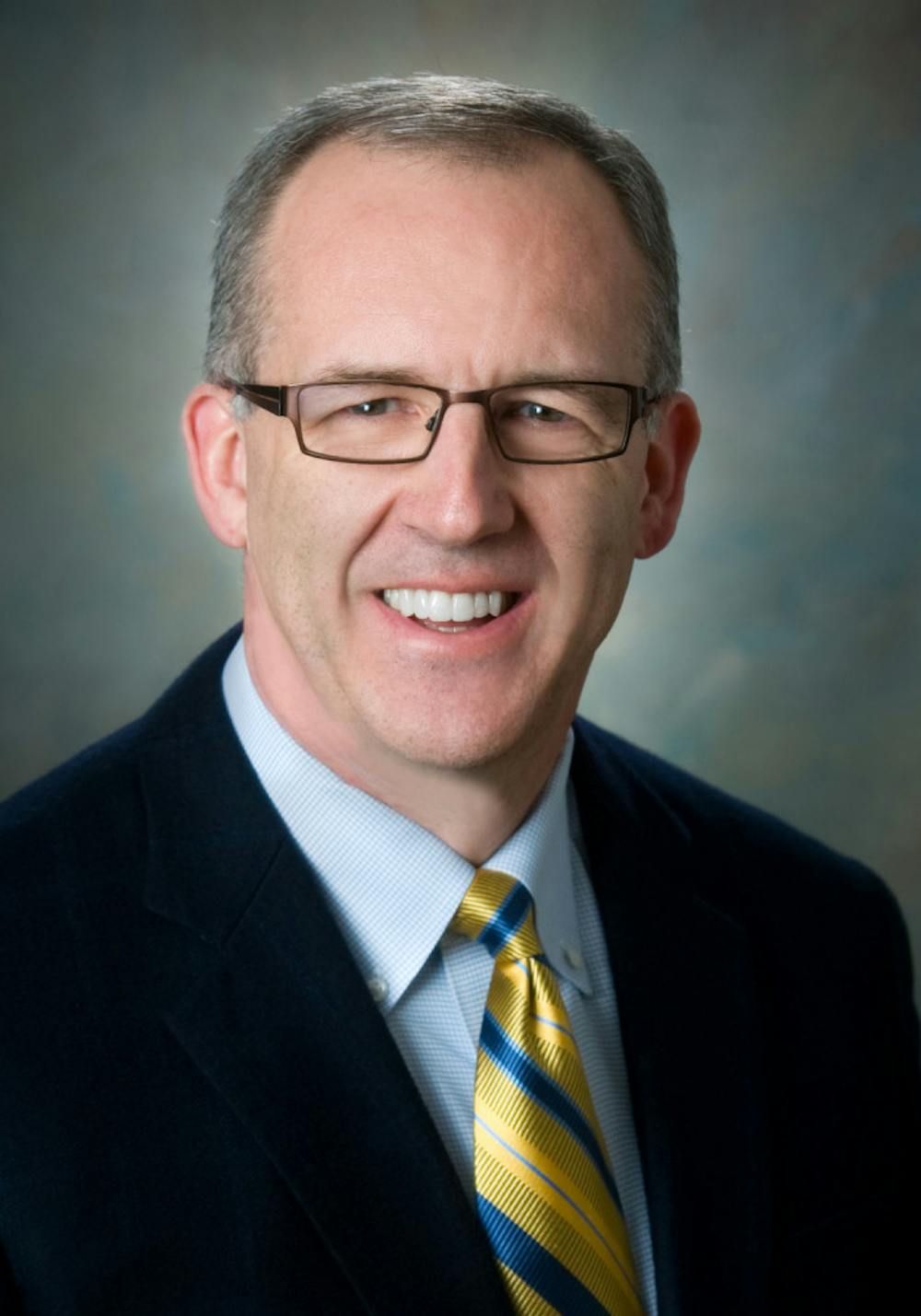NASHVILLE, Tenn. — Greg Sankey just got handed keys to the most luxurious kingdom in college sports. Sankey was announced Friday as the eighth commissioner of the Southeastern Conference in his 13th year of involvement with it — serving as Executive Associate Commissioner and the SEC’s COO. He succeeds two visionaries in college sports. Roy Kramer the longtime commissioner who instituted a conference championship game and helped usher in the framework for the BCS, and Mike Slive who in concert with ESPN created a lucrative television network launched last summer and cleaned a conference dealing with major compliance issues.
“As the SEC's commissioner,” Sankey said. “It is my responsibility to both serve and to lead so that we might magnify our collective influence through the unique combination, the very unique combination of higher education and competitive athletics. I look forward to the journey because I am absolutely convinced that our best days are ahead.”
Florida coach Billy Donovan called the hire “great” and “really smart.” He understands that Sankey sees the big picture and has a pulse on the NCAA and the future of it. Donovan’s boss agrees.
"Greg is the perfect person to lead the SEC into the next chapter of its storied history," Florida athletics director Jeremy Foley said in a statement. “Like Commissioner Slive, he is a consensus builder who sees the big picture and understands the complex issues facing collegiate athletics today. He is well respected and has the ability to connect with his peer groups, coaches, administrators and student athletes."
Sankey takes over as the SEC's headman during a time in which the tectonic plates of collegiate athletics are shifting at an unprecedented rate. Last month, the NCAA ADs voted to enact reform and allow schools to offer a full cost of attendance stipend to its student athletes. Sankey sidestepped a question on whether he thinks more student athlete compensation will evolve out of COA, but did say he thinks the limit is reached on what funds can be coaxed out of scholarship based compensation for student athletes.
The NCAA is being sued left and right with more shots across the bow in the actual courtroom as well as in the court of public opinion than it knows what to do with. It is this climate that Sankey steps into, to continue the SEC’s penchant to push for reform an uncertain future in which no one knows what’s next for collegiate athletics.
“We could probably be more targeted with how we involve our student athletes in conversations about conference policy issues and national policy issues through advisory committees that maybe focused on highly recruited student athletes in particular to seek their input,” he said “I'm absolutely comfortable walking into a room with no conference table and no agenda and saying to our young people, Tell me what you think. Tell me how we can help. Tell me what we need to know.”
Sankey said his SEC will continue to focus on supporting the collegiate model, and work together with other conferences to aid career transition for student-athletes. He says the acknowledgment of the need for change in that area is a “placeholder” for specific reform coming in the future.
He’s a northerner, just like his predecessor Slive, which removes the cries of bias from the ravenous SEC fanbases that may feel they are left out by a biased commissioner. Former Florida coach Steve Spurrier vetted his credentials the first time the two met, and after Sankey told the head ball coach he graduated from State University in Cortland before going on to get a Masters at Syracuse University, Spurrier felt that was sufficient.
Sankey’s message is clear whether or not he’s from under the Mason-Dixon or not. The conference that dominates not only this corner of the nation is as healthy as it’s ever been, but that doesn’t stop the need for growth and innovation.
“We're not done. We're not close to being done,” Sankey said. “The SEC is poised to make a difference in the lives of student athletes for generations. And we must ensure the lessons that they learn, both in the classroom and through competition, translate into success in their lives.”
Follow Richard Johnson on Twitter @RagjUF






